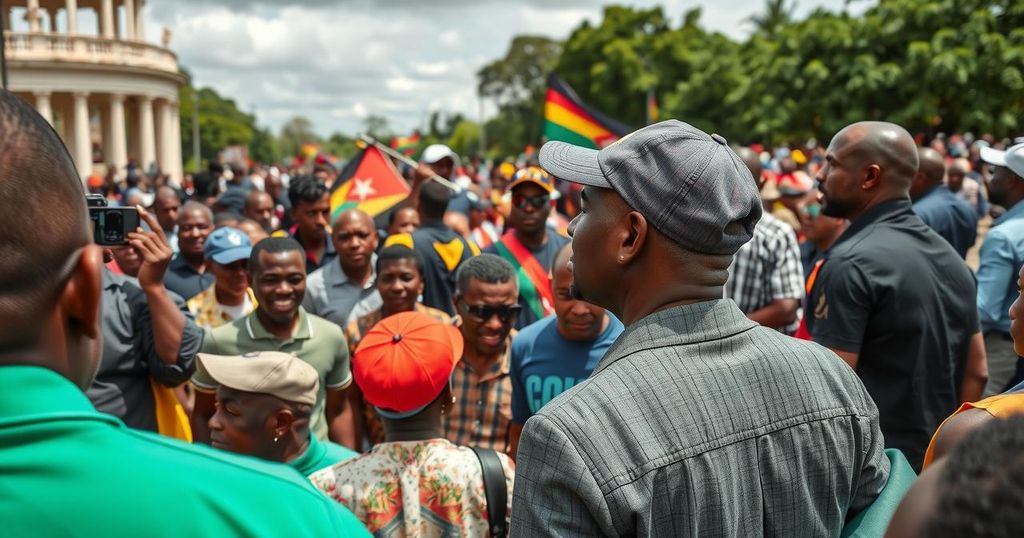Venancio Mondlane, Mozambique’s opposition leader, returned from exile, claiming victory in October’s disputed elections. His arrival sparked large, tumultuous gatherings that resulted in violence and fatalities as police intervened. Mondlane is open to negotiations, while the government seeks dialogue to address the political crisis. His presence may alter the dynamics between the ruling party and supporters, underscoring the urgency for resolution in the face of ongoing unrest.
On Thursday, Mozambique’s primary opposition leader, Venancio Mondlane, returned from over two months of exile, asserting that he won the presidential elections held on October 9. His arrival was met with large crowds of enthusiastic supporters, despite tragic unrest that resulted in one fatality and several injuries as police attempted to manage the gathering at the international airport. Mondlane’s comeback coincides with the impending inauguration of ruling party leader Daniel Chapo as the new president on January 15.
While Mondlane knelt and held a Bible upon exiting the terminal, he emphasized his belief that the elections were manipulated in favor of the ruling Frelimo party, which has governed for the past half-century. His popularity, particularly among disillusioned youth, reflects a deep-seated frustration with the government’s failure to address widespread poverty and marginalization. Tensions escalated when security forces clashed with supporters, leading to reports of serious injuries and fatalities in the city center, underscoring the volatile political climate.
Despite the violence, Mondlane called for negotiations, stating, “I’m here in the flesh to say that if you want to negotiate… I’m here.” He expressed readiness to face charges against him, asserting his status as the legitimate president and urging dialogue among political factions. The government initiated discussions with opposition leaders, including those affiliated with the Podemos party, demonstrating a recognition of the urgent need to resolve the crisis.
Analysts note the precarious situation, indicating that Mondlane’s return poses both a risk and an opportunity for political stability. As highlighted by Eric Morier-Genoud, “If the government arrests Venancio, there will be an international outcry and potentially very dangerous demonstrations.” Mondlane’s presence could either exacerbate current tensions or foster much-needed dialogue for the nation’s future.
The political landscape in Mozambique has been tense following accusations of electoral fraud in the recent presidential elections. The Frelimo party has dominated Mozambican politics for decades, and amidst growing dissent, the return of opposition leader Venancio Mondlane aims to galvanize his supporters and address grievances related to governance and economic hardship. His departure into exile raises questions about security and political freedom, highlighting ongoing conflicts between governmental authority and public expression. The protests that erupted following the elections were marked by violence, with many casualties reported. As the country grapples with economic setbacks triggered by unrest, there is a compelling need for dialogue among political entities to stabilize the situation. Mondlane’s engagement upon his return could be pivotal in constructing a pathway towards reconciliation and progress.
In conclusion, Venancio Mondlane’s return from exile is a significant moment for Mozambique’s political landscape, amidst allegations of electoral manipulation and public discontent. His calls for dialogue provide a potential avenue for addressing the ongoing crisis that has resulted in violence and economic hardship. The government’s response will be crucial in determining whether this situation leads to either exacerbated conflict or a new chapter of cooperation and stability for the nation.
Original Source: www.wfxg.com






